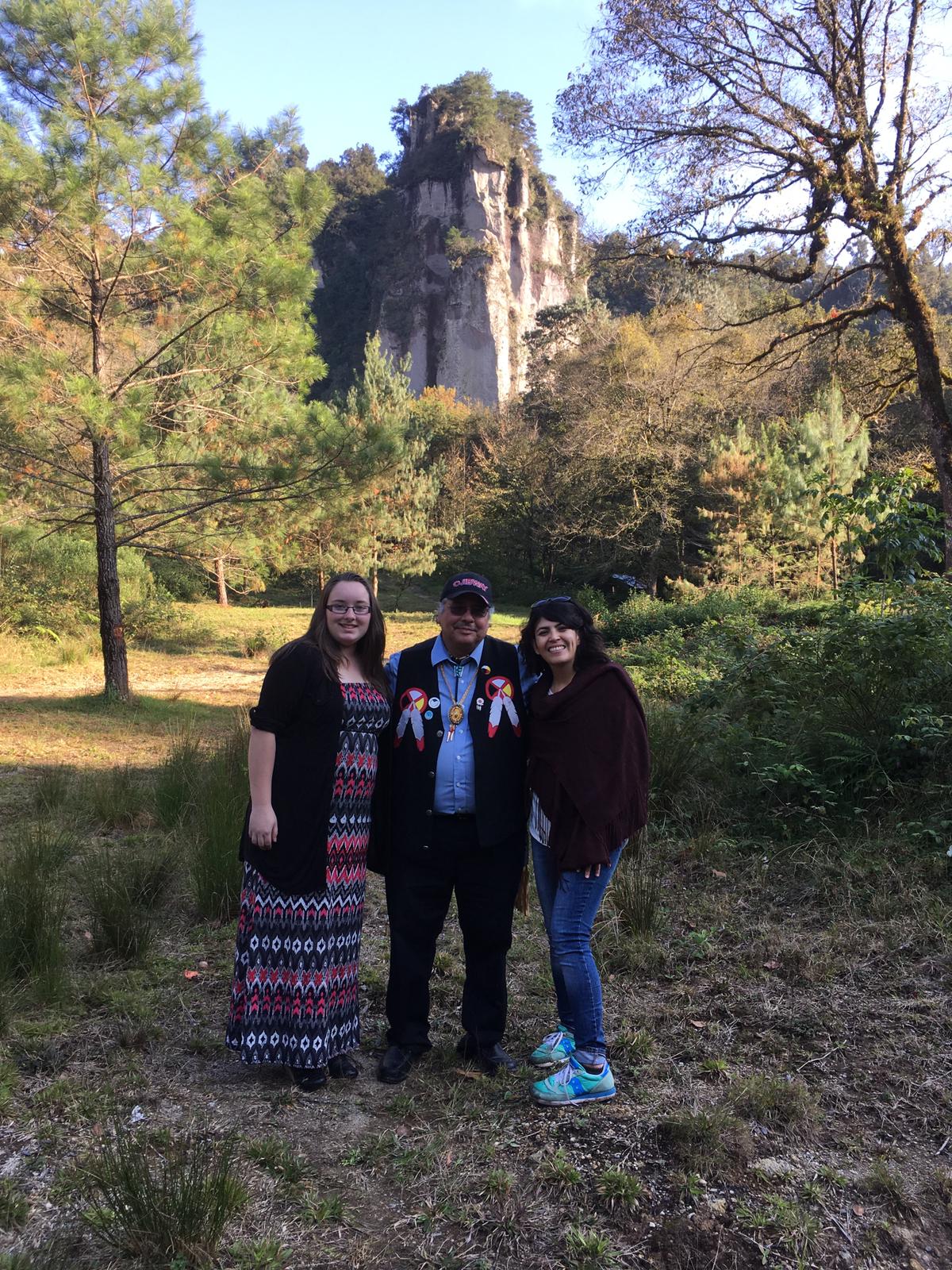Three members of the Conestoga community travelled to Mexico in December to participate in a short study tour. The visit was part of the Mexican Government Grant Program for Canadian Indigenous Students, which provides opportunities to enhance bilateral exchange between Indigenous and intercultural academic communities.

Three members of the Conestoga community travelled to Mexico in December to participate in a short study tour where they met members of Mexico’s Indigenous communities, participated in language classes and shared traditional knowledge. L-R: Jessica Cook, Myeengun Henry and Rita Palacios.
Educational Support student Jessica Cook, Myeengun Henry, manager of Aboriginal Services, and Rita Palacios, a languages professor at Conestoga, spent a week with faculty and students at the Universidad Intercultural del Estado de Hidalgo (UICEH) in the city of Tenango de Doria where they met members of Mexico’s Indigenous communities, participated in language classes and shared traditional knowledge.
UICEH is one of 12 intercultural universities in Mexico established to provide access to higher education in rural regions with a mainly Indigenous population. They aim to train for economic development through programs based on a model that combines scientific and traditional knowledge and allows for the preservation of culture and languages. Tenango de Doria and its surrounding area is home to Indigenous populations of Hñähñu, Ñuhu, Nahua and Tepehua people.
For Cook, the experience was more than educational. It provided an opportunity to build relationships and have impactful conversations about shared experiences.
“I learned so much during this trip,” said Cook. “I got to embrace the environment and see different ways to grow and farm, and different cultural and family practices that worked with the climate. I also got to share some of our practices and culture as we talked about our Indigenous experiences.”
Henry and Palacios joined the trip as faculty representatives — Henry, who identifies as Indigenous, teaches part time at the college in addition to managing Aboriginal Services. Palacios, who holds a doctorate in Spanish with a specialization in Latin American literature, provided translation support.
“I loved interacting with students because they showed to be eager to learn and passionate about their culture,” Palacios shared. “With faculty, we had many thoughtful conversations about their research, their teaching and own experiences. I look forward to continuing the exchange of ideas we initiated and learning more about the region.”
In addition to interacting with students and faculty at the university, the group also had the opportunity to visit Indigenous communities in the region, observing and participating in ceremonies that included tending to sacred gardens, a Ñuhu sweat lodge ceremony and joining a traditional dinner with elders.
“Each community we visited had a uniqueness and warmth that demonstrated unity,” said Henry. “I am so thankful to have had this opportunity to create friendships, learn about the beautiful environment and people of Mexico, and share Indigenous knowledge.”
The Mexican Government Grant Program for Canadian Indigenous Students invites students and faculty who identify as Indigenous to participate in a six-day study tour to carry out academic activities with curricular value at an intercultural and bilingual university in Mexico. Each participant is granted two-way airfare, ground transportation and additional support of up to $500 CAD.
